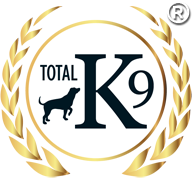Diet plays a crucial role in the overall health and well-being of dogs. It affects their physical health, mental health and behaviour. A well-balanced and nutritious diet can help keep dogs healthy and happy, while a poor diet can lead to various health problems and unwanted behaviours. In this blog post, we will explore how diet affects dog behaviour.
Nutrient Imbalances and Behavioral Issues
A diet that lacks essential nutrients or has imbalanced nutrient ratios can cause behavioural issues in dogs. For instance, a diet deficient in essential fatty acids, such as omega-3 and omega-6, can lead to skin problems, inflammation, and cognitive dysfunction. A lack of these nutrients can also lead to changes in mood and behaviour, including aggression and anxiety.
On the other hand, a diet with an excessive amount of protein can cause hyperactivity, restlessness, and anxiety. This is because excessive protein intake can lead to an imbalance of amino acids in the brain, leading to an increase in the stress hormone, cortisol.
Food Additives and Behavioural Changes
Food additives such as artificial colours, flavours, and preservatives can also affect a dog’s behaviour. For example, some artificial colours and flavours can cause hyperactivity and attention problems. Preservatives such as BHA and BHT have been linked to anxiety and aggressive behaviour in dogs.
The Source of Carbohydrates and Fibre
The source of carbohydrates and fibre in a dog’s diet can also affect their behaviour. Highly processed carbohydrates, such as white rice and wheat flour, can cause spikes in blood sugar levels, leading to hyperactivity and anxiety. On the other hand, complex carbohydrates, such as sweet potatoes and quinoa, are slower to digest and provide a more sustained release of energy, which can help keep dogs calm and relaxed.
A Good Diet Makes a Healthy Dog
In conclusion, diet plays a crucial role in a dog’s behaviour. A well-balanced and nutritious diet can help keep dogs healthy and happy, while a poor diet can lead to various health problems and unwanted behaviours. Pet owners should consult with a veterinarian or animal nutritionist to ensure their dog’s diet meets their nutritional needs and is appropriate for their age, size, and activity level.

